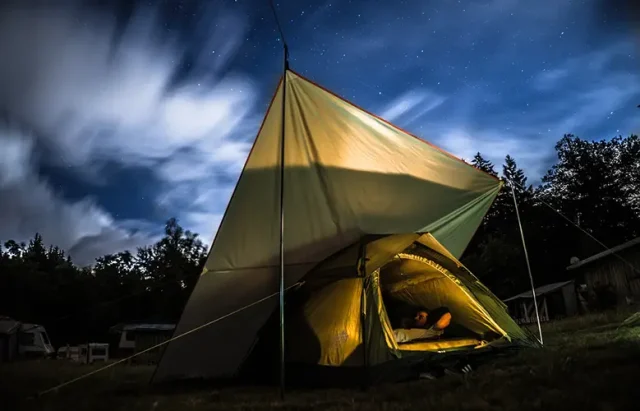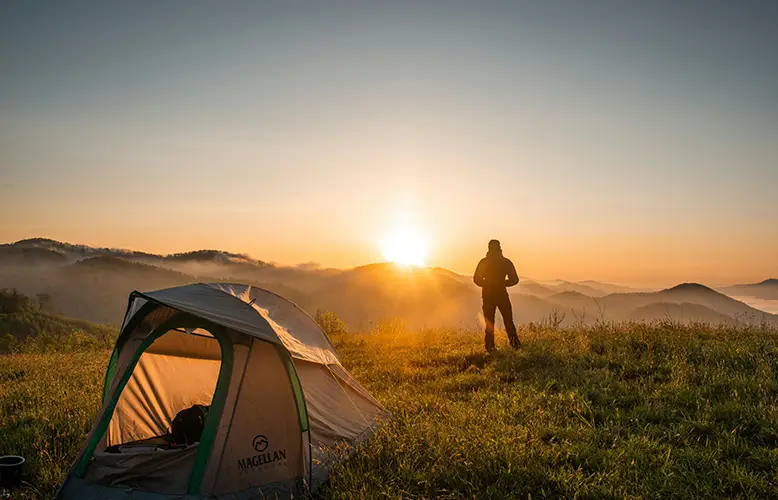
Camping in the wilderness offers an unparalleled connection to nature, from breathtaking landscapes to the thrill of exploring the unknown. Yet, venturing into the great outdoors comes with its share of challenges and risks.
Whether you’re a seasoned adventurer or a first-time camper, staying safe is key to enjoying every moment under the stars. From unpredictable weather to encounters with wildlife, being prepared can make all the difference.
That’s why we’ve put together six top tips to help you stay safe while embracing the wild. These practical guidelines will ensure your adventure is not only exciting but also secure. Let’s get started.
Plan Your Trip Thoroughly Before Heading Out
Preparation is the foundation of a safe camping trip. Begin by researching your chosen campsite and familiarizing yourself with its terrain, weather conditions, and potential hazards. Check for any permits or restrictions required for the area. Always share your itinerary with a trusted friend or family member, including your expected return date.
Carry detailed maps and learn how to use a compass, especially if you’re venturing into remote areas without reliable phone service. Packing a first-aid kit, sufficient food, and plenty of water is non-negotiable. A little planning ahead can prevent big problems, ensuring you’re ready to tackle any surprises nature might throw your way.
Choose the Right Camping Gear for Your Needs
Investing in quality camping gear can enhance your safety and comfort during your adventure. Start with a sturdy, weather-resistant tent that matches the season and environment of your trip. A proper sleeping bag is essential to protect you from cold nights, as is choosing suitable clothing layers for changing weather conditions. For instance, you can find warm puffy outdoor blankets to keep cozy around the campfire or during chilly evenings. They come in a variety of sizes, materials, and insulation levels, making it easy to find one that suits your needs.
Look for options that are lightweight and easy to pack but still provide ample warmth and durability. Pair these with compact, portable chairs or seating mats to make your campsite both functional and comfortable. With the right gear, you’ll be better equipped to handle varying conditions while maximizing the enjoyment of your wilderness adventure.
Understand and Respect Wildlife
Encounters with wildlife are part of the charm of camping, but they can also be dangerous if handled poorly. Research the animals that inhabit your campsite and learn how to avoid attracting them. Store food in secure containers, preferably bear-proof ones, and never leave scraps or trash lying around. Keep a safe distance from any wildlife you encounter—no matter how harmless they may appear.
Avoid feeding animals, as it disrupts their natural behaviors and may increase the likelihood of aggressive encounters. Respecting wildlife is not only essential for your safety but also ensures minimal impact on the environment and its inhabitants.
Learn Basic Survival Skills
Being equipped with basic survival skills can give you confidence and security while camping. Start with fire-building techniques, as fire is essential for warmth, cooking, and signaling for help. Learn how to filter and purify water from natural sources in case your supply runs low. Basic first-aid knowledge is a must for treating cuts, burns, or insect bites.
Understanding how to navigate using a map and compass can be a lifesaver if you lose your way. Even if you’re camping with modern conveniences, these skills can act as a safety net, ensuring you’re prepared to face unexpected challenges during your adventure.
Practice Campsite Safety Protocols
Your campsite setup plays a crucial role in ensuring safety. Choose a site on level ground, away from flood-prone areas or dead trees that could fall. Maintain a safe distance from water sources to avoid flash floods or unwanted wildlife visits. Keep your cooking area separate from your sleeping area to reduce the risk of attracting animals.
Properly extinguish campfires before leaving them unattended, as wildfires can start in a matter of minutes. By organizing your campsite thoughtfully, you create a safer and more enjoyable environment for yourself and your fellow campers.
Be Weather-Wise and Prepared for Emergencies
Weather conditions can change rapidly in the wilderness, so staying informed is crucial. Check the forecast before you leave and prepare for unexpected shifts, such as rainstorms or extreme temperatures. Pack rain gear, sun protection, and layers to adapt to different weather scenarios.
Familiarize yourself with signs of hypothermia, dehydration, and heatstroke so you can act quickly if needed. Carry an emergency beacon or satellite phone, especially if camping in remote areas. Being weather-wise and prepared for emergencies ensures you can handle any situation confidently, allowing you to fully enjoy your outdoor adventure without unnecessary stress.
Stay Hydrated and Pack Enough Food
Proper hydration and nutrition are essential for maintaining energy and focus while camping. Always carry more water than you think you’ll need, as hiking and outdoor activities can increase your hydration requirements.
If you’re camping in an area with access to natural water sources, bring a portable water filter or purification tablets to ensure a safe supply. Plan your meals carefully, opting for lightweight, high-energy foods like trail mix, granola bars, and dehydrated meals. Avoid perishable items unless you have a way to keep them cool. Keeping your body fueled and hydrated is key to enjoying your wilderness adventure safely.
Know How to Communicate in Case of Emergencies
Having a reliable way to communicate during emergencies is crucial, especially in remote areas with limited cell service. Consider carrying a satellite phone, personal locator beacon (PLB), or GPS device with SOS capabilities. Familiarize yourself with the emergency procedures and contact numbers for the area you’ll be exploring. Practice signaling techniques, such as using mirrors or whistles, to attract attention if needed.
If camping in a group, establish a communication plan and meeting points in case anyone gets separated. Being prepared to call for help ensures you can respond effectively to unexpected situations and increases your chances of a safe return.

Camping in the wilderness is a rewarding experience, but staying safe is vital to fully enjoy the adventure. By planning thoroughly, choosing the right gear, respecting wildlife, and understanding basic survival skills, you can significantly reduce risks and enhance your trip. Practicing campsite safety and staying weather-aware further ensures a secure and enjoyable experience. Remember, preparation and mindfulness are your best allies in the great outdoors. With these six tips in mind, you can confidently embrace the beauty and challenges of nature, creating memories that last a lifetime while ensuring you return home safe and sound.





